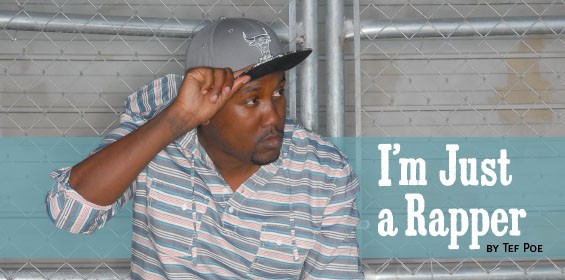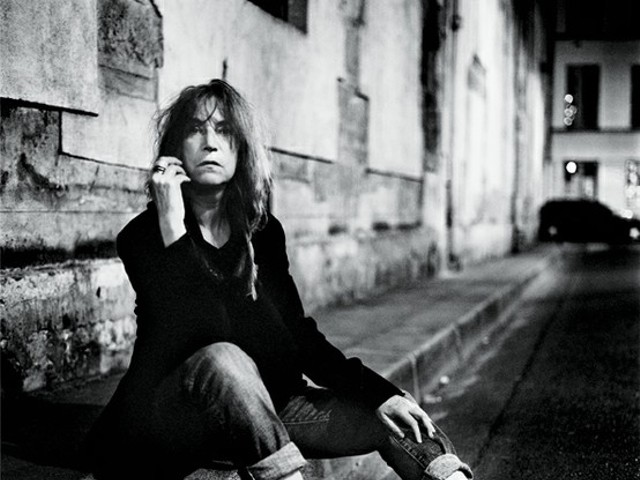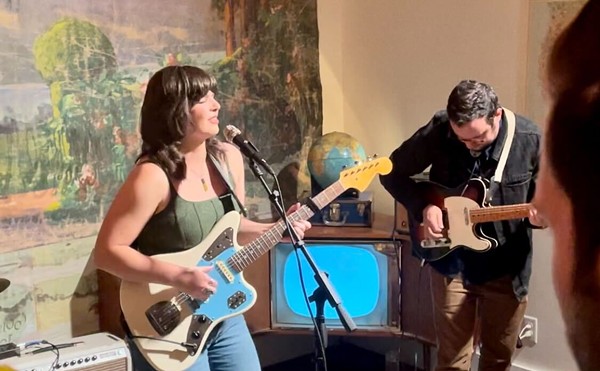Editor: Tef Poe is an artist from St. Louis city. Through powerful imagery and complicated honesty, he has earned a reputation as one of the best rappers telling the story of St. Louis, which is about much more than one place. Poe has been featured in music publications such as XXL and Urb Magazine. His project The Hero Killer was released on January 21 and will be followed up by a full-length with DJ Burn One entitled Cheer For the Villain. Follow him on twitter @tefpoe. Get The Hero Killer here.
Last week I was thinking about an old hip-hop documentary entitled Rhyme and Reason, a classic featuring all of your favorite rappers from the '90s. I watched it when I was younger, and even though by the time I got my hands on it the film was a few years old, I still felt the need to watch it every day, if not multiple times a day.
This documentary gave me a crash course in golden era hip-hop. I studied it and let it become apart of me. The film carried the type of energy you want to feel when you press play on one of your favorite hip-hop records.
Recently I was at home alone and bored, so I watched it on Netflix and allowed the nostalgia of the moment to entertain me for the night. I noticed something about Rhyme and Reason which I had never noticed before: A lot of the MCs in the film looked older than the MCs of today. When I say this I don't say it with a negative connotation, but I mean the men and women on this film looked like adults, talked like adults, and were very much settled into their maturity. The film features interviews and appearances from almost any golden era act you can think of, from Tupac to Outkast, Wu Tang Clan, Q-Tip etc., the list goes on forever.
I could only think of a handful of acts that I'd compare to that era. I think people like Killer Mike, Danny Brown, Top Dawg Entertainment, Big Krit, Joey Badass and Rockwell Knuckles would've fit in perfectly with these types of acts. I'm sure there are more I forgot to mention but these are simply a few examples. This thought lingered in my mind for a few weeks as one of those hip-hop sticky notes stored in the subconscious of Tef Poe.
Now, it's no secret I'm a huge Killer Mike fan. I earnestly believe listening to his music motivated me to create a indie machine for myself and push the ball as far as I could. Unless you've been living under a rock for the last year, you probably know he dropped a classic hip-hop album. All of the major media publications like Time Magazine and Rolling Stone validated and stamped this body of music.
This morning I rolled over and watched his interview on the Breakfast Club. I was kind of shocked by the fact that they had him on the show, for starters. I watched the interview, and as I expected, it was one of the most amazing interviews I've watched in awhile. I think it felt like an old Ice Cube or Tupac interview, but with modernized energy. By the end, something clicked inside my head and said "this is exactly what hip-hop is supposed to be like." This is exactly what I want my favorite rappers to be. This interview, when watched through the right lens, reveals exactly why Killer Mike is so important, and his presence in the hip-hop culture today is very much needed. The man is a politically savy gangster rapper that is friends on a personal level with all your favorite rappers on both sides of the fence. The trappers and the rappers both love him. I'm a hybrid mix of both myself, so his music speaks directly to me. I sold weed and pills but I wasn't Big Meech. I was just a regular everyday kid jumping off the porch and trying to my pay light bill or buy some clean sneakers. I didn't even know what I was doing, to be honest, but I just needed some money and couldn't find a job. My little brother came over to my house one day and saw the digital scale on my table, and said "What the fuck are you doing?" I replied, "Paying rent."






